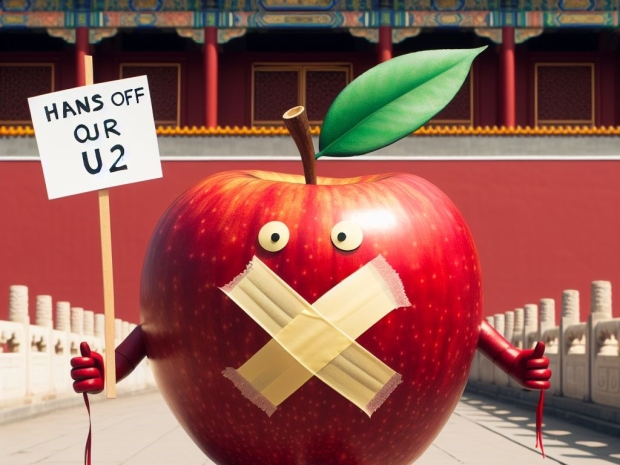Meta Platforms' WhatsApp and Threads, along with Signal, Telegram, and Line, were removed from the Chinese App Store last Friday. Jobs' Mob explained that it was instructed to ditch certain apps due to national security concerns, though it didn't disclose which ones.
A spokesperson for the fruity cargo cult said that it would not be standing up to the Chinese with the same vigour that it might with the EU or the US.
"We are obligated to follow the laws in the countries where we operate, even when we disagree," said a spokesperson for Jobs' Mob said.
These chat apps, which let users chatter and share files one-on-one and in large groups, boast a global user base north of three billion. They're only reachable in China through virtual private networks that skirt around China's Great Firewall, yet they're still widely used.
Beijing's always been a bit twitchy about such platforms, fretting that its citizens might use them to spread iffy content and rally for protests or social movements. A fair bit of the news China keeps under wraps at home tends to slip past the Great Firewall via these apps.
The Cyberspace Administration of China reportedly pressed Jobs' Mob to scrub WhatsApp and Threads from the App Store because they've got political chit-chat that's a bit dodgy, including some less-than-flattering mentions of the Chinese president. The spokesperson from Jobs' Mob insisted that wasn't why they were removed.
The cull reduces the number of foreign chat apps available to Chinese netizens for chinwags with folks outside the country, tightening Beijing's grip on the internet, which is already pretty leery about unfiltered info doing the rounds.
Over the last ten years, Sensor Tower reckons, Instagram, X, Facebook, YouTube, and WhatsApp have racked up more than 170 million downloads from Jobs' Mob's App Store in China. Apps like X played a blinder in spreading the word and footage of the anti-Covid rule protests in China towards the end of 2022.
Jobs' Mob might have to axe even more foreign and local apps in China, following a government decree last year that told mobile app developers to register their apps with the powers-that-be by this March. Beijing said it's gunning for apps that are up to no good, like those involved in phone scams.
These app axings are just the latest in a series of moves Jobs' Mob has made in its biggest market outside the US to stay on the right side of China's ever-tightening censorship and data security laws. Last year, it was the top dog in China's smartphone market, bagging more than 17 per cent of it, says International Data Corporation.
More than 14,000 apps are on the no-go list in China, according to AppleCensorship.com, a site run by the anti-censorship crew GreatFire, who've been keeping tabs on this for over ten years. Among the banned are tools for getting around internet blocks, chat apps, and apps linked to the LGBT community, GreatFire says.
China's not just a massive sales market for Jobs' Mob; it's also where they make most of their gear. But it's not all smooth sailing. Weak spending's been a drag on sales, and local rivals are giving them a run for their money. Beijing has even put the brakes on state employees who use iPhones.
Just this Thursday, Huawei kicked off sales of its swanky new Pura 70 smartphone range, which industry watchers reckon will nick more of Jobs' Mob's market share in China. Counterpoint Research is betting on Huawei's smartphone sales in China jumping 39 per cent this year.
The fresh set of rules over apps applies to both foreign and local app shops and doesn't single out Jobs' Mob. However, the services bit, which includes App Store deals, is a big deal for Jobs' Mob's bottom line, and any kerfuffle with the Chinese App Store could take a bite out of their profits.
Meta's been trying to worm its way back into China's hefty consumer market after Facebook got the boot in 2009, when China clamped down on its internet following some anti-government ruckus. But it's not getting anywhere. Mark Zuckerberg, the big cheese at Meta, has been having a pop at China and the short-video app TikTok lately, which hasn't done him any favours in Beijing.
Meta's still raking it in from China by flogging ads on its platforms to Chinese firms. It's also been sniffing around a deal with Chinese social media and video game giant Tencent to hawk its virtual-reality headsets in the country.

